- Home
- Harry Harrison
Harry Harrison! Harry Harrison! Page 2
Harry Harrison! Harry Harrison! Read online
Page 2
1992
The Turing Option is published.
1993
Stainless Steel Visions and The Hammer and the Cross are published.
1994
The Stainless Steel Rat Sings the Blues and Galactic Dreams are published.
1995
One King’s Way is published.
1996
King and Emperor and The Stainless Steel Rat Goes to Hell are published.
1997
Harry Harrison is guest of honor at the European Science Fiction convention in Dublin.
1998
March 5, Stars and Stripes Forever is published.
1999
Official Harry Harrison website launched at Octocon in Dun Laoghaire, Republic of Ireland.
The Stainless Steel Rat Joins the Circus is published.
December 16, “The Road to the Year 3000” is published in the journal Nature.
The 2000s
2000
March 11 to 12: HH is guest of honor at Mecon (the third Northern Ireland SF convention) in Belfast, Northern Ireland, where he celebrates his 75th birthday.
April 6, Stars and Stripes in Peril is published.
April 11, HH undergoes major heart surgery.
HH is a guest at Chicon 2000 (the 58th Worldcon), Chicago, USA.
2001
October, HH is a guest at Octocon, Dun Laoghaire, Republic of Ireland.
2002
February 15 to 17 and 22 to 24, Labours of Love presented by the Waimea Community Theatre at the Parker School Auditorium, Waimea, Hawaii, USA. Five one-act comedies on the theme of “men, women, and relationships” are performed, directed by J. Wayne Ryker II. Included is the play “For the Sake of Peace,” adapted from HH’s short story “The Day After the End of the World.”
April 21, death of Joan Harrison.
April, Harry Harrison: An Annotated Bibliography by Paul Tomlinson is published.
June 6, Stars and Stripes Triumphant is published.
October, HH is a guest at Octocon, Maynooth, Republic of Ireland.
2004
July 9, HH is inducted into the Science Fiction and Fantasy Hall of Fame in Lawrence, Kansas, USA.
July 22, HH is awarded the Inkpot Award for Outstanding Achievement in Science Fiction and Fantasy by the Comic-Con International in San Diego, California, USA.
2005
March 12, Harry Harrison celebrates his 80th birthday.
November 19 to 20, HH is a guest at Comic Expo, held at the Hilton Metropole, Brighton, England.
HH attends convention in Kiev.
HH receives the Philosopher’s Stone Award from the 2005 Kharkov convention for Service to Science Fiction.
2006
April, HH is guest of honor at the Eurocon held in Kiev and is made a European Grand Master by the Eurocon committee.
June 9 to 11, HH is guest of honor at the Atjaro Gateway Festival and Euroconference, Budapest, Hungary.
November 25, death of Leon E. Stover.
2007
April, HH attends ALT.Fiction in Derby, England.
September 21 to 23, HH attends Eurocon 2007 in Copenhagen, Denmark.
November 6 to 8, HH delivers a paper on “Speculating on the South: Reimagining the Historical South through Scholarship and Art,” organized by the Institute of African American Research, Johnston Center for Undergraduate Excellence at the University of North Carolina at Chapel Hill, North Carolina, USA.
2008
May 17 to 18, HH is guest of honor at Roscon 2008, held in Moscow, Russia. HH is presented with the Golden Roscon Award for Lifetime Achievement in Science Fiction.
May 25, the spacecraft Phoenix lands on Mars; on board is a mini DVD created by the The Planetary Society, the contents of which being described as follows: “Personal greetings by space visionaries of our time to Mars settlers of the future are accompanied by eighty stories and articles by leading writers and scientists. A collection of Mars artwork, and classic radio shows narrated by Patrick Stewart, complete this unique tapestry of our knowledge and our dreams of Mars in the 20th century.” The disc includes HH’s One Step from Earth (1970).
2009
April 24 to 26, Harry Harrison attends the Nebula Award weekend in Los Angeles, California, USA, where he receives the Damon Knight Memorial Grand Master Award, presented by the Science Fiction Writers of America.
The first world edition of The Stainless Steel Rat Returns!— the eleventh novel in the series—is published in Russia.
2010
The Stainless Steel Rat Returns! is published in the USA by Tor.
2012
August 15, Harry Max Harrison passes away in Brighton, England.
CONTENTS
Title Page
Copyright Notice
Acknowledgments
Time Line of Harry’s Life
Introduction
Part One
Chapter 1
Chapter 2
Chapter 3
Chapter 4
Chapter 5
Chapter 6
Chapter 7
Chapter 8
Chapter 9
Chapter 10
Chapter 11
Chapter 12
Chapter 13
Chapter 14
Chapter 15
Chapter 16
Chapter 17
Chapter 18
Part Two
Editor’s Note
John W. Campbell
Make Room! Make Room!
Esperanto
Russia
Stainless Steel Rat
West of Eden
Alternate History
Bibliography
Tor Books by Harry Harrison
About the Author
Copyright
On the jacket of the German translation of one of my novels there appeared an expression that I had never stumbled on before. After the stern facts of Geboren in Stamford, 1925 and Er lebte en Mexiko, Italien, Dänemark, it went on to refer to me as a Weltenbummler. Was I being called a “world bum”? Not nice. Professor T. A. Shippey, science fiction scholar, novelist, and linguist, set me right. “No, not a bum, Harrison—though others may think differently. It is an old and good German term, one not too different from our word ‘apprentice.’ Or better ‘journeyman,’ as in journeyman printer. A novice working at a skilled trade would go from workplace to workplace, learning new skills and crafts.”
I think the Germans are right about me. Weltenbummler indeed. Everything new, different, interesting, educational becomes part of a writer’s life. It is all grist for the creative mill. Many times the connection is obvious—I wrote Captive Universe after living in Mexico, seeing the life there in the isolated villages, discovering how these people understood their world. In Our Hands the Stars uses Denmark as a setting; the people, their attitude toward life, shape the structure of the novel.
Those are the obvious examples. But there are subtler threads in my writing; many times things that I am not aware of are there, that are pointed out by critics or friends. Or enemies? I do not wish to put down Peoria, home of that fine writer Philip José Farmer, but I do feel that there is more to the world than Peoria. I have lived for extended periods, for months and years, in a total of six countries. I have visited at least sixty more. I feel enriched by the experience. More important—I feel that my work has been enriched.
Circumstance, and residing outside my native country for some forty-four years, has certainly changed me. Changed the way I think, the way I write. I am an internationalist now, feeling that no single country is better than any other. Though there are certainly some that are worse. I speak Esperanto like a native, or as Damon Knight once said, “Harry speaks the worst English and the best Esperanto I have ever heard.” I have traveled with this international language, learning other languages along the way, and have made friends right around the globe.
This is how it happened.
PART ONE
1
&nbs
p; My generation of Americans were the first ones born in the New World. Without exception our parents were European—or at the most they were just one generation away from the immigrant ships. My genealogy is a perfect example.
My mother was born in 1882 in Riga, the capital of Latvia, which was then part of the Russian Empire. The family moved to St. Petersburg, where my grandfather worked as a watchmaker. They didn’t exactly flee the anti-Jewish pogroms, but with a keen sense of survival they got out while they were still able. (I remember, as a child, that my mother still used the word “Cossack” as a pejorative.)
My grandfather emigrated first and went to work for the Waterbury Watch Company in Waterbury, Connecticut. Once he settled in and had earned some money he sent for his family, a few at a time.
My father, however, was a second-generation American; his father was born in Cork. Dad was born in the very Irish community in Oneida, New York, in the part of town named the Irish Ridge. This was where the immigrants from Ireland lived when they came to the United States to build the Erie Canal. However his mother was born in Ireland, in Cashel, Tipperary.
In the 1970s, while tracking down my own genealogy and searching for proof of my Irish ancestry in order to gain Irish citizenship, I found that I needed a copy of her birth certificate or other proof of birth. I knew that she was born in Dualla, a suburb of Cashel. After many years in Ireland I knew where to go for local information. All of the medical records had been burned by the British, or so I was told. So I went to the oldest pub—where I bought a round of drinks for the oldest drinkers. It lubricated their memories.
“Moyles—yes, I remember the chap, that printer fellow who moved up to Dublin.” Close. My family on my father’s side were all printers. “Best to talk to Father Kinsella. He’s here every third Sunday in the month.” As the Irish population declined, the priests had to cover more than one parish. Another round of drinks and I had the vital information. On the correct Sunday I visited the good Father, with dire results. He was a tiny man with a white tonsure; his eyes flashed as he pointed to the tottering heaps of air letters. “Americans! It seems they all have grandmothers they’re looking for.…” That was my cue; I jumped to my feet. “I see that you are a busy man, Father. I’m putting twenty quid in the poor box and I’ll be on my way.” Bank notes rustled greenly and the poor of Dualla were that better off.
“What did you say her name was?” the good Father asked. It took five minutes’ time to find Margaret Moyles in the baptismal register, even less to make a copy of her entry. I was sincere with my thanks as I folded it into my wallet. For there, in faded blue ink, in neat Spenserian handwriting, the priest had entered Margaret Moyles, 12 August 1832. All for the price of a few pints. I took that down to the Irish passport office, to the “born abroad” authority, and that was the final piece of paper I needed to get—it wasn’t a European passport in those days, it was a nice green passport with a golden shamrock: it looked like a real passport!
For the record: I was born in Stamford, Connecticut, but grew up in Queens, one of the five boroughs of New York City. My friends were the same as I, a step—or a half step—away from the Old World. Which was something we learned to look down upon as a weakness, not a strength. The Old World was part of the past. Forget that old stuff, we were all-American now (though this made for a linguistic pool that was only appreciated during World War II, when there was never any shortage of translators in the army when they were needed).
My father, Henry Dempsey, started his printing career at the age of five when he began work as a printer’s devil (the lad who opened the shop in the morning and turned on the heater for the diesel engine that powered the printing press). He went on to become a journeyman printer who worked all over the United States and Canada, as well as a quick look-in to Mexico. This history only came out bit by bit through the years.
* * *
The story of my name change, however, emerged sooner when I, Sgt. Harry Harrison, veteran of the U.S. Army Air Corps, applied for a passport. My mother showed some understandable discomfort when, most reluctantly, she produced my birth certificate.
The name on it was Henry Maxwell Dempsey. As you can imagine I was most interested in where “Harry Harrison” had come from. In tracking down the history of my name I discovered far more about my father’s life as an itinerant printer than I had previously known. He explained. His family name was indeed Dempsey, but there were some hiccups along the way. It seems he had run into a bit of trouble in Mississippi. At the time he was a journeyman printer, going from job to job. Any town with a print shop and a newspaper welcomed him. Work was never a problem. To get between jobs he rode the rails, in empty boxcars, along with other bindle stiffs—the name for a skilled worker between jobs (as opposed to a regular hobo or bum). This was soon after the turn of the century, with employment very scarce. Riding the rails was an accepted form of transportation for men looking for work.
A lot of my father’s early history I knew. What I didn’t know—with very good reason!—was this missing episode in what certainly can be called a most interesting life.
It seems that the local police in rural Mississippi had rounded up all the itinerant workers from the boxcars of the train, including Henry Dempsey. If you had two dollars or more you were released as a legitimate worker between jobs. My father didn’t have the two bucks so was sent to jail for a year for vagrancy. If this sounds a little exotic to you, think about the reaction of Sergeant Harrison with the strange birth certificate. Of course the whole thing was just a scam for the state of Mississippi to get guys to chop cotton for free. Nice. As my father explained, the end of this particular episode came rather abruptly, when a hurricane hit Mississippi one night. It had rolled up the corrugated iron roof on his barracks and blown it away. The prisoners followed the roof—and my father went with them, vowing never to return to the fine cotton-growing state of Mississippi ever again. And who could blame him?
Later on, after he was married and I was born—and certainly when I was still a baby—he changed his name to Leo Harrison. In those pre-computer days no questions were asked.
Later, during the war, he began to worry about the legality of all this—and was there the possibility that he was still an escaped prisoner? Like a loyal citizen he went to the FBI and told them all that had happened to him. Imprisonment, escape, name change, the works.
They smiled and patted him on the back and thanked him for coming in. And, oh yes, don’t worry about Mississippi, their crooked vagrancy laws had been blown away in court many years previously.
I asked my friend Hubert Pritchard to come with me to the passport people, where he swore that he had known me before and after my father’s name change, when we were both about three years old. No problem. I got a new passport. The story had had a happy ending. My father, the new Henry Harrison, went back to work. But this was all in the future. After years of working all over the country, my father had settled down. He was doing better and earning more money, working now as a highly skilled compositor and proofreader on newspapers—far away from the South. By the early 1920s he was teaching printing at Condé Nast in Stamford, Connecticut.
One of the printers he worked with there was called Marcus Nahan. They must have hit it off and become friends, because it was then that he met Marcus’s wife Anna. She was a Kirjassoff, one of eight brothers and sisters (this family name was an Anglicized version of the Hebrew Kirjashafer, which in turn was a version of Kiryath-Saphir, a town in Israel). All three of her brothers had gone to Yale; all of them became track stars. Louis and Meyer both became engineers. Max went into the State Department and became U.S. consul in Yokohama, Japan—the first Jewish consul in waspland—and was killed in the earthquake there. Most of the sisters had gone to normal school and trained as teachers, except for Rose, who also went into government, ending up in the War Department with the simulated rank of colonel. One of the other sisters, my mother, Ria, also became a schoolteacher. Then, one day, her sister Anna in
vited her around to dinner.
That my parents met, and eventually married, is a matter of record. What they had in common has always baffled me. My mother was from a family of Jewish intellectuals; five out of her six granduncles were rabbis. My father’s family was middle-class immigrant Irish. (Interestingly enough, almost all my Irish relatives worked in printing or publishing, both in Ireland and the States). Irish working class, Jewish intellectual—only in America.
But meet they did, marry they did, and had a single child. A few years later my father, as we have seen, changed his name and took that of his stepfather, Billy Harrison. (I never met Billy, since he had passed on before I was born. Ironically, he had died of silicosis after many years of sanding wood while working in a coffin factory.) I did meet my grandmother when she came to Queens to visit us. I remember a neat and compact white-haired Irish woman with a most attractive Tipperary brogue. She told me two things that I have always remembered. “Whiskey is the curse of the Irish” and “Ireland is a priest-ridden country.” She had four sons and three died of drink. When I moved to Ireland I had some hint about the priests. After the child-molesting scandals broke, the whole world knew.

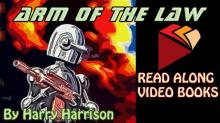 Arm of the Law
Arm of the Law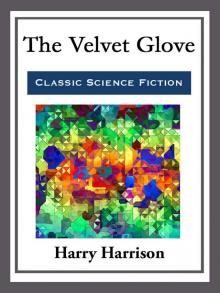 The Velvet Glove
The Velvet Glove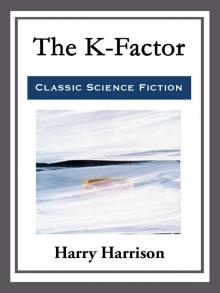 The K-Factor
The K-Factor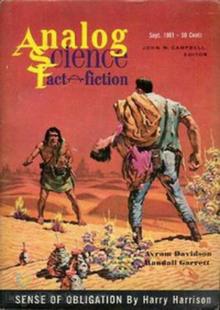 Sense of Obligation
Sense of Obligation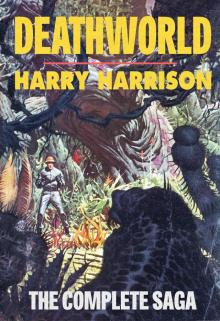 Deathworld: The Complete Saga
Deathworld: The Complete Saga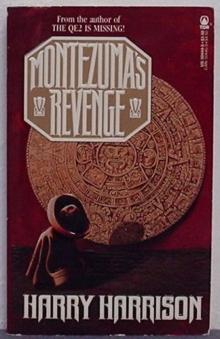 Montezuma's Revenge
Montezuma's Revenge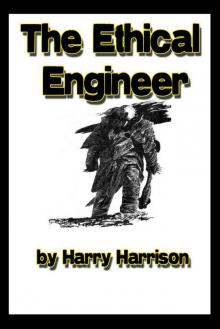 The Ethical Engineer
The Ethical Engineer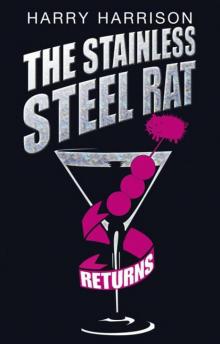 The Stainless Steel Rat Returns
The Stainless Steel Rat Returns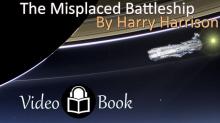 The Misplaced Battleship
The Misplaced Battleship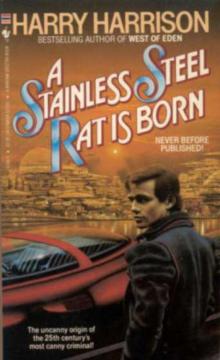 The Stainless Steel Rat is Born
The Stainless Steel Rat is Born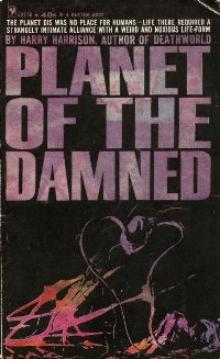 Planet of the Damned bb-1
Planet of the Damned bb-1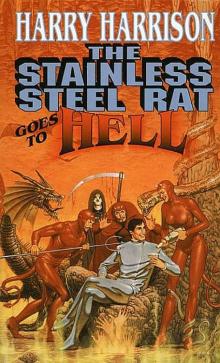 The Stainless Steel Rat Goes to Hell ssr-10
The Stainless Steel Rat Goes to Hell ssr-10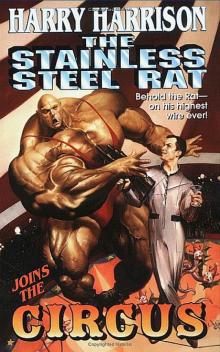 The Stainless Steel Rat Joins the Circus ssr-11
The Stainless Steel Rat Joins the Circus ssr-11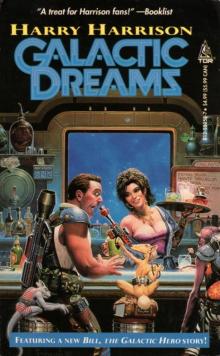 Galactic Dreams
Galactic Dreams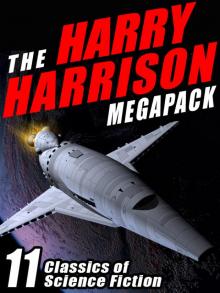 The Harry Harrison Megapack
The Harry Harrison Megapack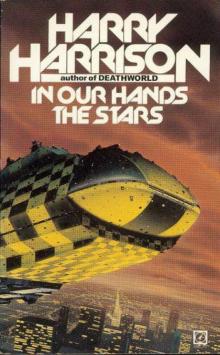 In Our Hands the Stars
In Our Hands the Stars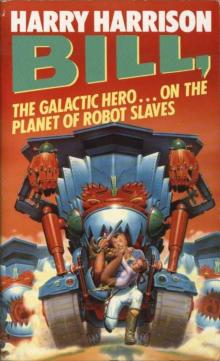 On the Planet of Robot Slaves
On the Planet of Robot Slaves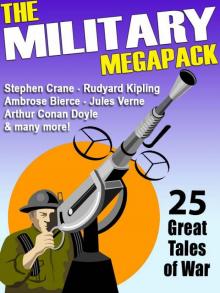 The Military Megapack
The Military Megapack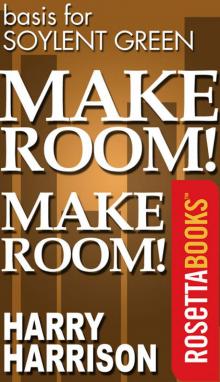 Make Room! Make Room!
Make Room! Make Room!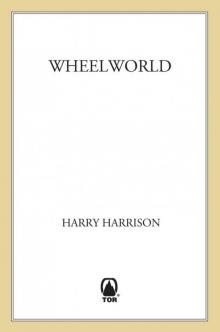 Wheelworld
Wheelworld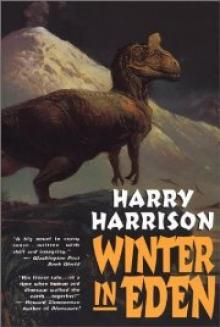 Winter in Eden e-2
Winter in Eden e-2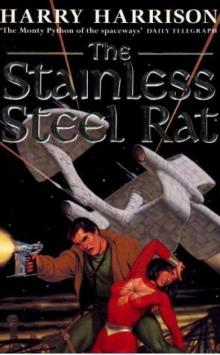 The Stainless Steel Rat
The Stainless Steel Rat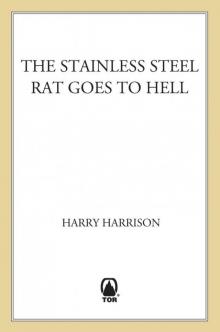 The Stainless Steel Rat Goes to Hell
The Stainless Steel Rat Goes to Hell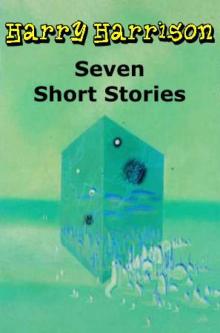 Harry Harrison Short Stoies
Harry Harrison Short Stoies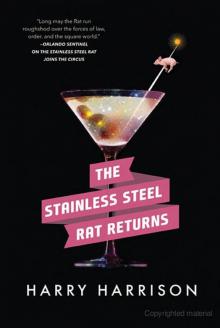 Stainless Steel Rat 11: The Stainless Steel Rat Returns
Stainless Steel Rat 11: The Stainless Steel Rat Returns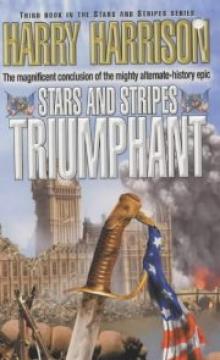 Stars and Stripes Triumphant sas-3
Stars and Stripes Triumphant sas-3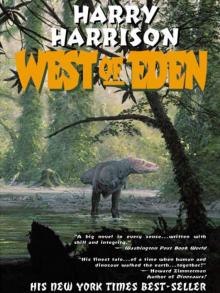 West of Eden
West of Eden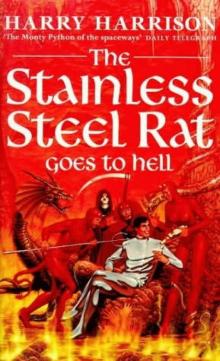 The Stainless Steel Rat Go's To Hell
The Stainless Steel Rat Go's To Hell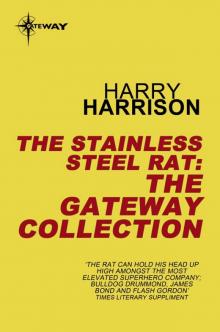 The Stainless Steel Rat eBook Collection
The Stainless Steel Rat eBook Collection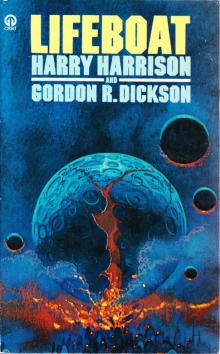 Lifeboat
Lifeboat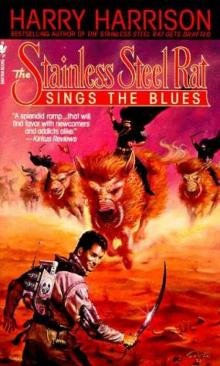 The Stainless Steel Rat Sings the Blues
The Stainless Steel Rat Sings the Blues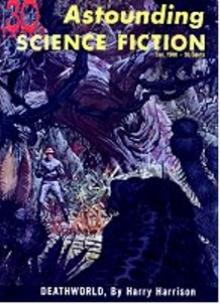 Deathworld tds-1
Deathworld tds-1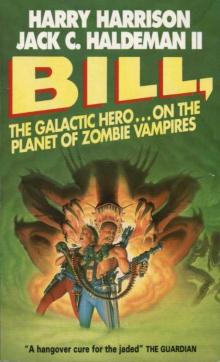 On the Planet of Zombie Vampires
On the Planet of Zombie Vampires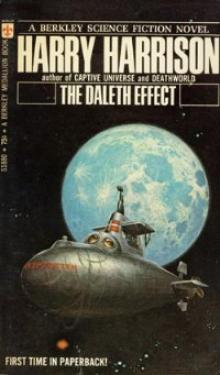 The Daleth Effect
The Daleth Effect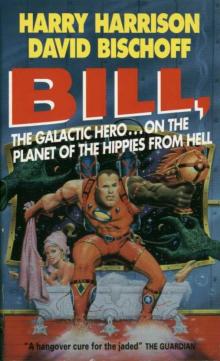 On The Planet Of The Hippies From Hell
On The Planet Of The Hippies From Hell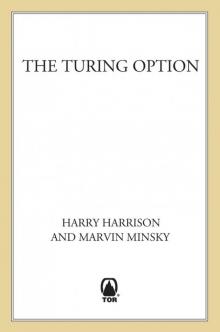 The Turing Option
The Turing Option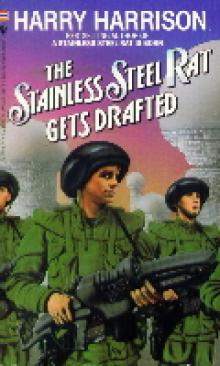 The Stainless Steel Rat Gets Drafted
The Stainless Steel Rat Gets Drafted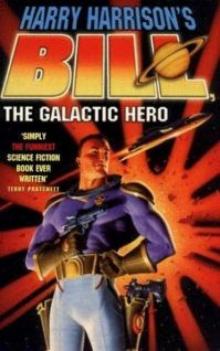 Bill, the Galactic Hero btgh-1
Bill, the Galactic Hero btgh-1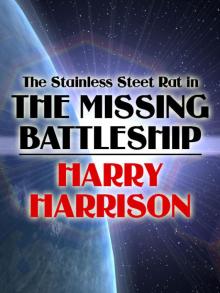 The Stainless Steel Rat in The Missing Battleship
The Stainless Steel Rat in The Missing Battleship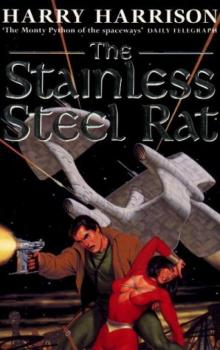 The Stainless Steel Rat ssr-1
The Stainless Steel Rat ssr-1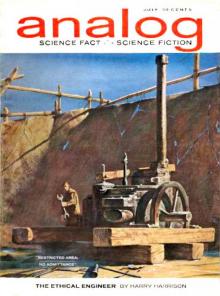 The Ethical Engineer (the deathworld series)
The Ethical Engineer (the deathworld series)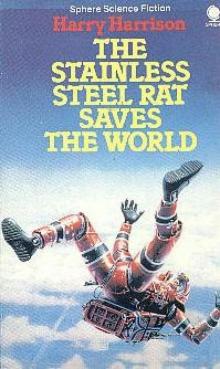 The Stainless Steel Rat Saves the World ssr-3
The Stainless Steel Rat Saves the World ssr-3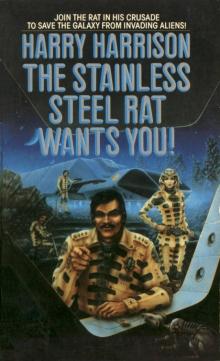 The Stainless Steel Rat Wants You
The Stainless Steel Rat Wants You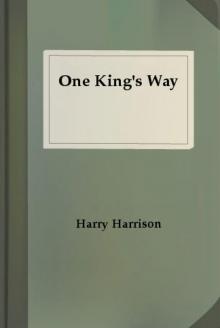 One King's Way thatc-2
One King's Way thatc-2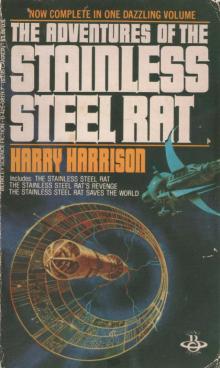 The Stainless Steel Rat Saves The World
The Stainless Steel Rat Saves The World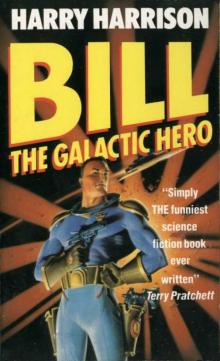 Bill, the Galactic Hero
Bill, the Galactic Hero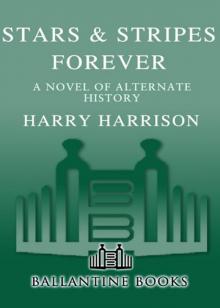 Stars & Stripes Forever
Stars & Stripes Forever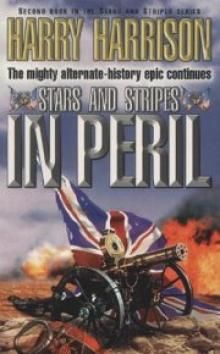 Stars and Stripes In Peril sas-2
Stars and Stripes In Peril sas-2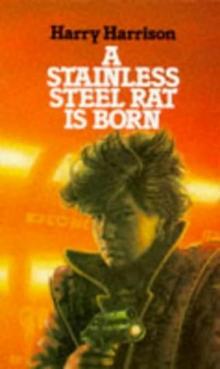 A Stainless Steel Rat Is Born ssr-6
A Stainless Steel Rat Is Born ssr-6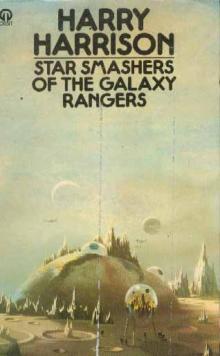 Star Smashers of the Galaxy Rangers
Star Smashers of the Galaxy Rangers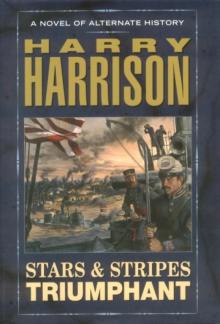 Stars & Stripes Triumphant
Stars & Stripes Triumphant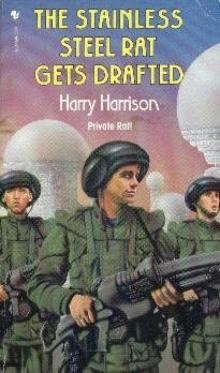 The Stainless Steel Rat Gets Drafted ssr-7
The Stainless Steel Rat Gets Drafted ssr-7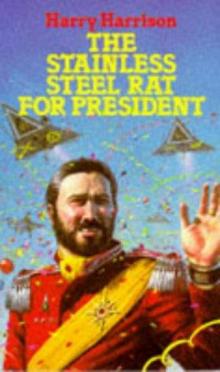 The Stainless Steel Rat for President ssr-5
The Stainless Steel Rat for President ssr-5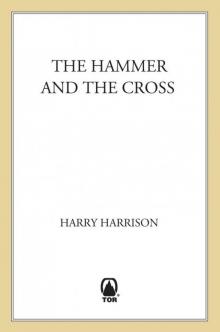 The Hammer & the Cross
The Hammer & the Cross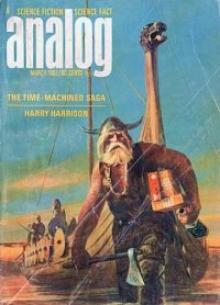 The Technicolor Time Machine
The Technicolor Time Machine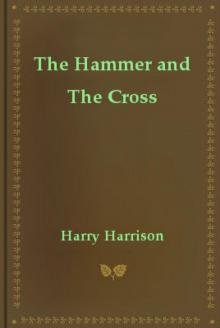 The Hammer and The Cross thatc-1
The Hammer and The Cross thatc-1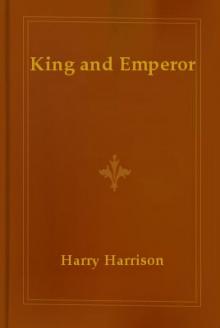 King and Emperor thatc-3
King and Emperor thatc-3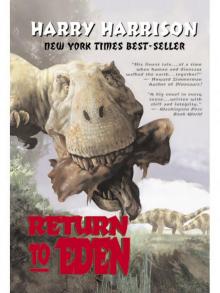 Return to Eden
Return to Eden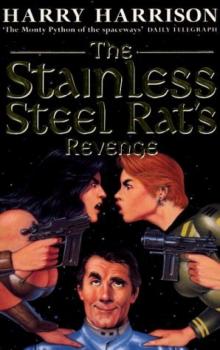 The Stainless Steel Rat’s Revenge ssr-2
The Stainless Steel Rat’s Revenge ssr-2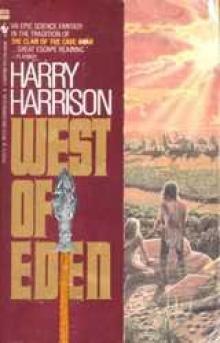 West of Eden e-1
West of Eden e-1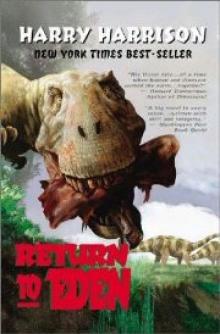 Return to Eden e-3
Return to Eden e-3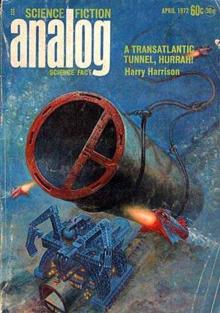 A Transatlantic Tunnel, Hurrah!
A Transatlantic Tunnel, Hurrah!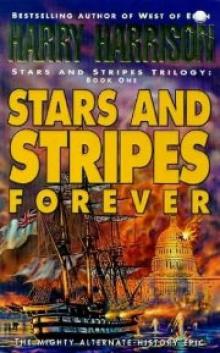 Stars and Stripes Forever sas-1
Stars and Stripes Forever sas-1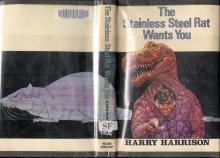 The Stainless Steel Rat Wants You ssr-4
The Stainless Steel Rat Wants You ssr-4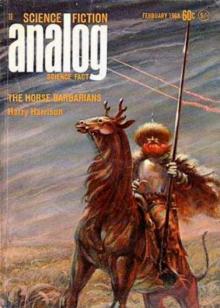 The Horse Barbarians tds-3
The Horse Barbarians tds-3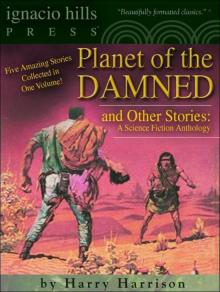 Planet of the Damned and Other Stories: A Science Fiction Anthology (Five Books in One Volume!)
Planet of the Damned and Other Stories: A Science Fiction Anthology (Five Books in One Volume!)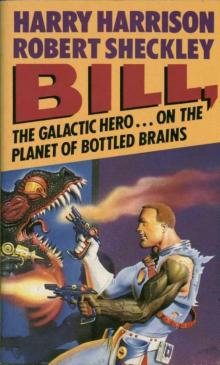 On the Planet of Bottled Brains
On the Planet of Bottled Brains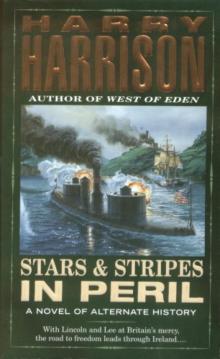 Stars And Stripes In Peril
Stars And Stripes In Peril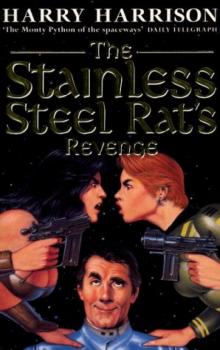 The Stainless Steel Rat's Revenge
The Stainless Steel Rat's Revenge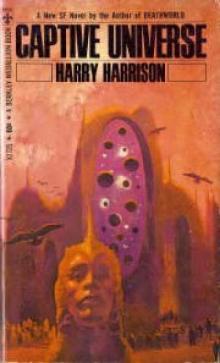 Captive Universe
Captive Universe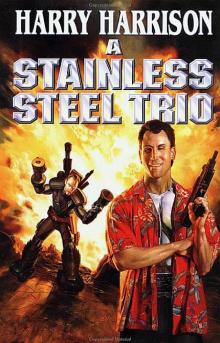 The Stainless Steell Rat Sings the Blues ssr-8
The Stainless Steell Rat Sings the Blues ssr-8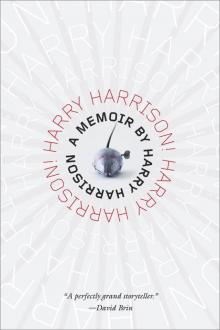 Harry Harrison! Harry Harrison!
Harry Harrison! Harry Harrison!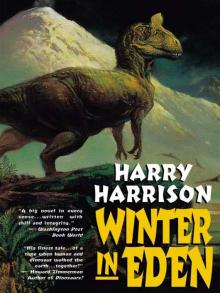 Winter in Eden
Winter in Eden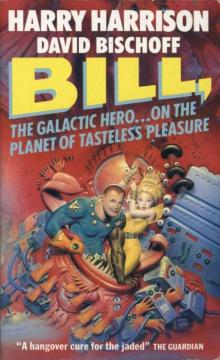 On the Planet of Tasteless Pleasures
On the Planet of Tasteless Pleasures